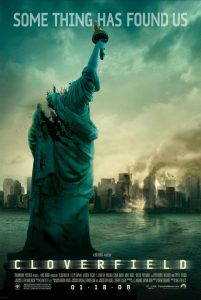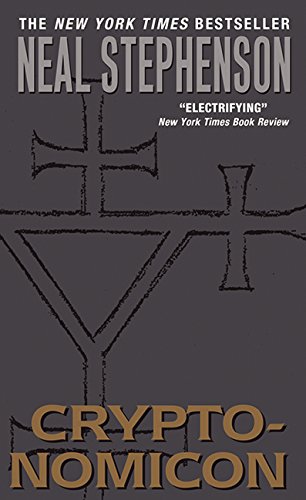 Then, earlier this week I saw Cloverfield, which will mean that I’m finally caught up. So that’s awesome. As for the awesomeness of the movie… well, it turns out it wasn’t really that kind of movie, and I think that’s what made it work so well. When you see Independence Day or Godzilla, to name a couple of other times New York has been destroyed, the focus of the film is on the people who are out there saving the day, and they’re big and heroic (or occasionally dorky and heroic) and the movie is about them saving the day. Cloverfield, contrariwise, is about us. Any of the regular people who, when New York starts falling apart around them, are basically fucked. And they know they are, but the thing about being human is you still do everything in your power to survive, even when there’s no hope. And sometimes there are still amazing feats and there are still small moments of heroism, and that’s okay because another thing about being human is that every so often you surpass your limits.
Then, earlier this week I saw Cloverfield, which will mean that I’m finally caught up. So that’s awesome. As for the awesomeness of the movie… well, it turns out it wasn’t really that kind of movie, and I think that’s what made it work so well. When you see Independence Day or Godzilla, to name a couple of other times New York has been destroyed, the focus of the film is on the people who are out there saving the day, and they’re big and heroic (or occasionally dorky and heroic) and the movie is about them saving the day. Cloverfield, contrariwise, is about us. Any of the regular people who, when New York starts falling apart around them, are basically fucked. And they know they are, but the thing about being human is you still do everything in your power to survive, even when there’s no hope. And sometimes there are still amazing feats and there are still small moments of heroism, and that’s okay because another thing about being human is that every so often you surpass your limits.
I’m going to leave plot out of it, I think, because except for that something is attacking New York and there’s a dude who has a video camera[1], you don’t really need to know anything else and it might take away from the impact. And, okay, there’s the Blair Witch comparison: sure enough, if you have motion-sickness problems, this will probably not be the movie for you. People have to run a lot, which makes for shaky camerawork. But if you can get past that, the rest of the film is equal parts cool / scary things happening amid explosions and gripping human drama, or occasionally melodrama. But let’s be honest, that’s just as real a part of the human experience as the rest of it. Plus it subscribes to the first rule of drive-in cinema: anyone can die, at any moment.[2]
[1] And pretty much everyone who has seen a movie preview somewhere in the past six months knows this much already.
[2] There are just so very many reasons I liked this movie.
 This review is somewhere between days and weeks late; I just haven’t simultaneously felt like writing anything and had time to. I’m not entirely clear on whether that confluence of events has in fact occurred now, but I pretty much have to get over the hump, right? The sad part is, I absolutely adored
This review is somewhere between days and weeks late; I just haven’t simultaneously felt like writing anything and had time to. I’m not entirely clear on whether that confluence of events has in fact occurred now, but I pretty much have to get over the hump, right? The sad part is, I absolutely adored